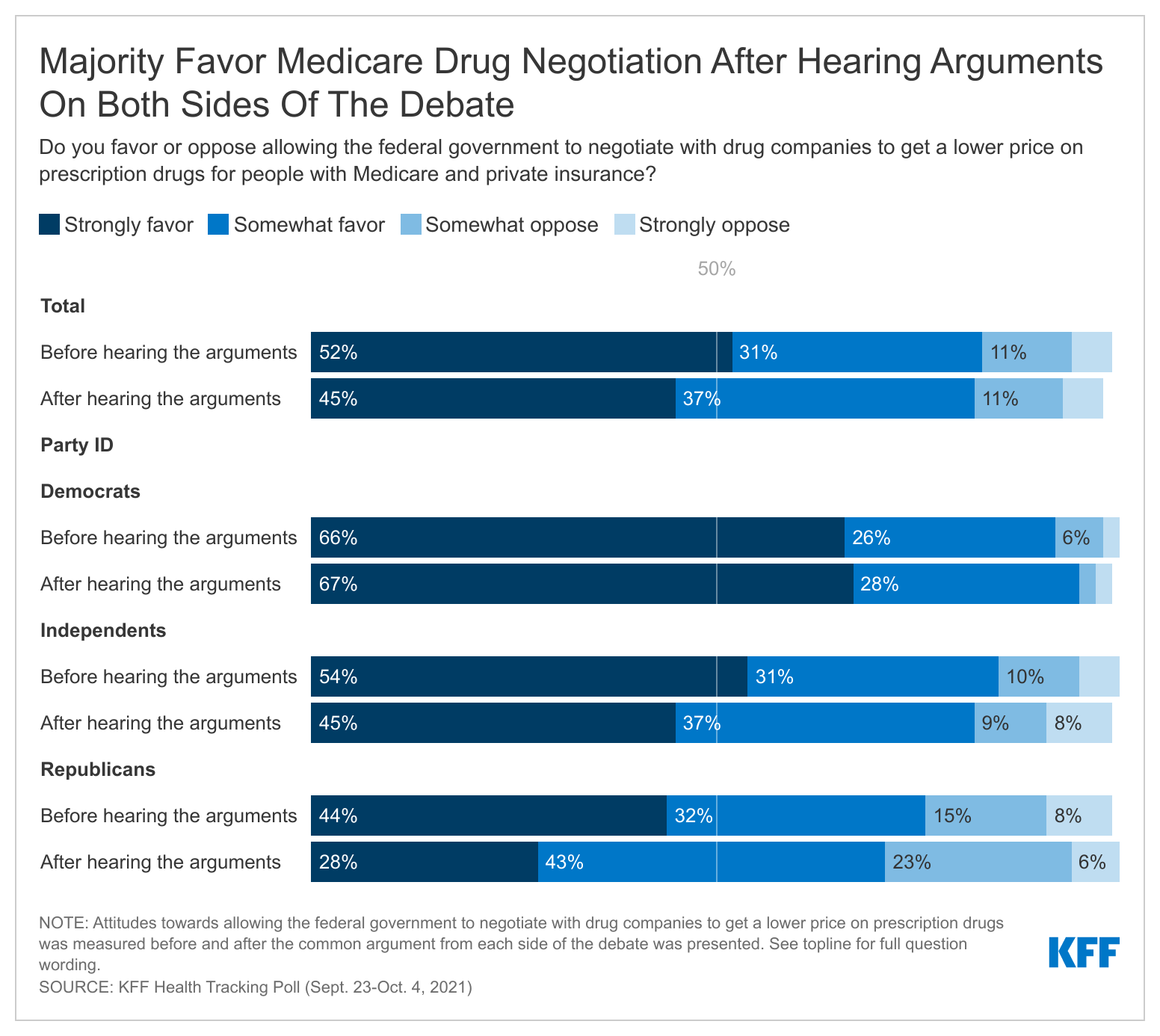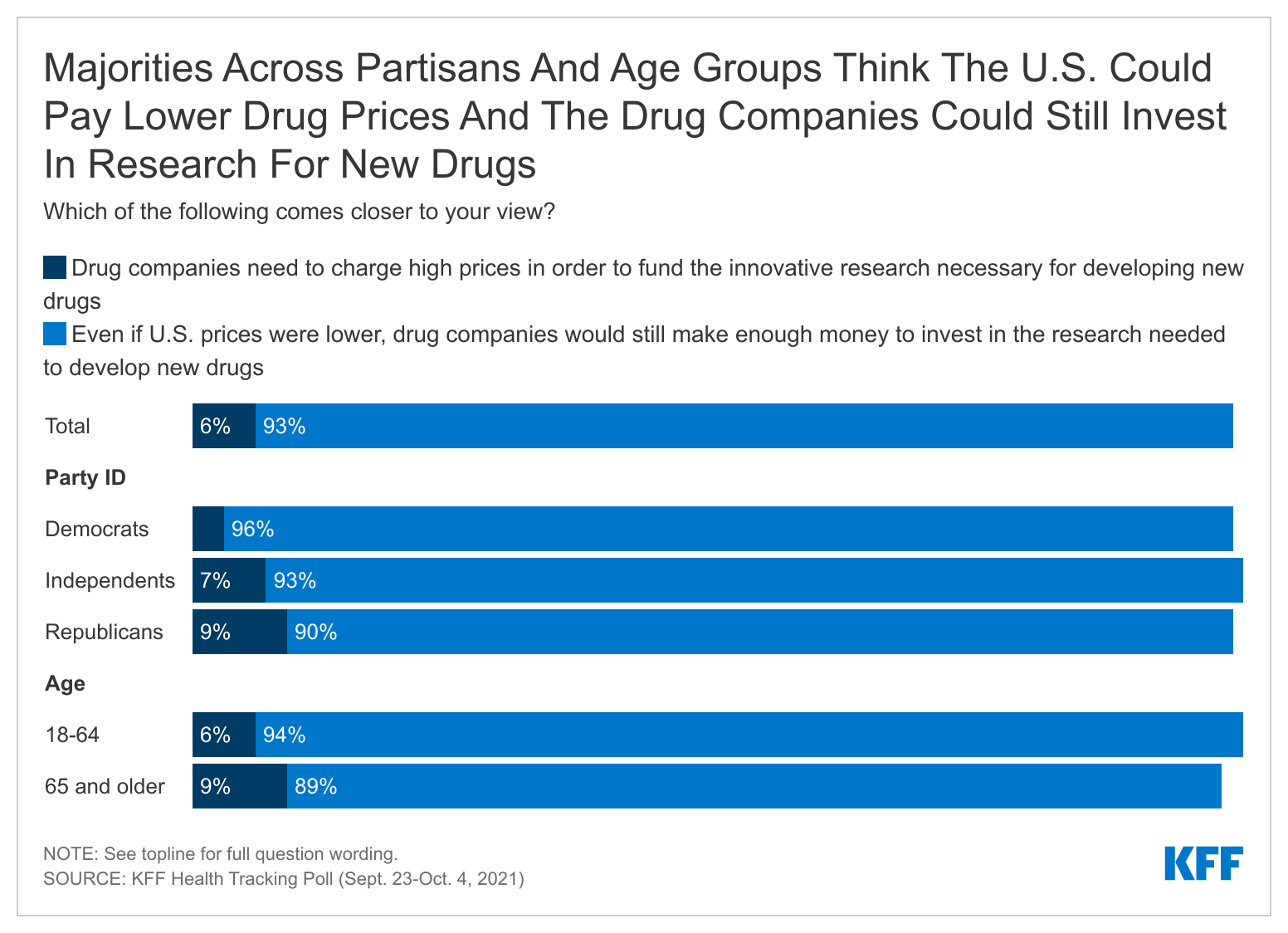
The independent source for health policy research, polling, and news.
Large Majorities Across Parties Favor Allowing the Federal Government to Negotiate Drug Prices, Even After Hearing Common Arguments About It
Few Buy Argument that Drug Makers Have to Charge High Prices to Invest in Research into New Drugs
Most of the Public Lacks Confidence that President Biden, Congressional Democrats or Republicans Will Do the Right Thing on Drug Prices
Allowing the federal government to negotiate with drug companies to lower drug prices for Medicare beneficiaries and people enrolled in private plans – a key cost-saving proposal in the Democrats’ massive reconciliation bill – is favored by large majorities across political partisans, even after they hear arguments from both sides, a new KFF Health Tracking Poll finds.
Initially 83% of the public say they favor allowing the federal government to negotiate with drug companies to lower drug prices on behalf of people enrolled in Medicare beneficiaries and private plans. This includes 91% of Democrats, 85% of independents, and 76% of Republicans, as well as majorities of seniors (84%), who would be most affected by such a provision.
To gauge the potential impact of a national debate over the proposal, the survey asked the public to assess a summary of key arguments being made for and against the plan. Those arguments do little to move the share of the public that favors or opposes the proposal, though affected the intensity of support among Republicans. While Republican support held steady (76% to 71%), the share who “strongly favor” it dipped (44% to 28%).
When asked specifically about each argument, most (84%) of the public, including three-quarters (78%) of Republicans, say the argument in favor – “this is needed because Americans pay higher prices than people in other countries, many can’t afford their prescriptions, and drug company profits are too high” – is convincing.
On the other side, a third (33%) say the argument against – “this would have the government too involved and will lead to fewer new drugs being available in the future” – is convincing. This includes nearly half (45%) of Republicans.
The public also rejects the argument that high prices are necessary for supporting research into new drugs.
When asked which comes closer to their view, 93%, including 90% of Republicans, say “that even if U.S. prices were lower, drug companies would still make enough money to invest in the research needed to develop new drugs”, while just 6% say that “drug companies need to charge high prices in order to fund the innovative research necessary for developing new drugs.”
The poll also reveals that the public does not have a lot of confidence in Washington to address the issue. Less than half the public say they have confidence in President Biden (46%) and Democrats in Congress (48%) to recommend the right thing on prescription drug prices, while a third say they have confidence in Republicans in Congress (33%).
Among key interest groups, more say they are confident in the recommendations of AARP (53%), which has strongly advocated for drug-price negotiations, than say so about drug companies (14%).
Additional findings from the KFF Health Tracking Poll will be released later this week.
Designed and analyzed by public opinion researchers at KFF, the KFF Health Tracking Poll was conducted from September 23-October 4 among a nationally representative sample of 1,146 adults including an oversample of adults, 65 and older (474). Interviews were conducted in English and Spanish online (1,024) and by telephone (122). The margin of sampling error is plus or minus 4 percentage points for the full sample. For results based on subgroups, the margin of sampling error may be higher.

